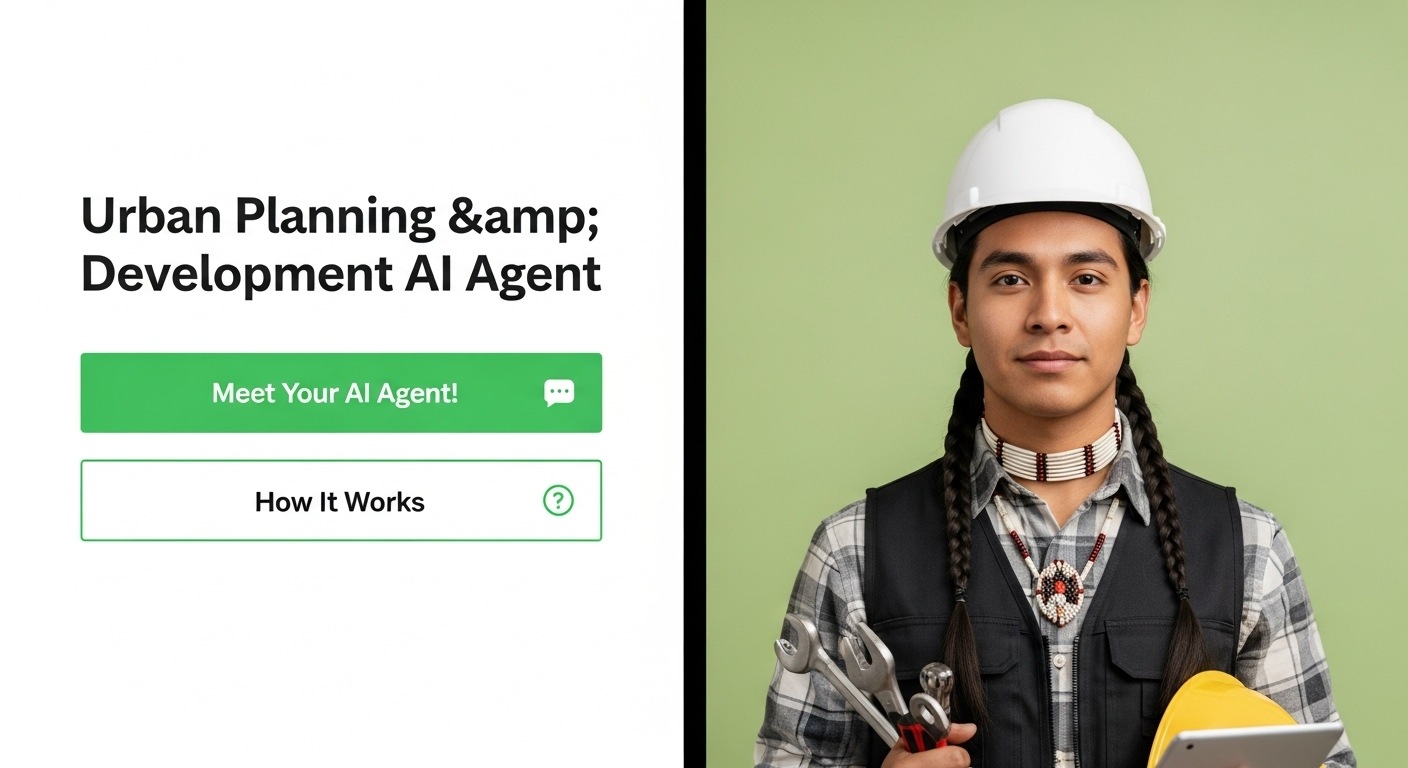Urban Planning & Development AI Agent
About
The Urban Planning & Development AI Agent is a specialized tool designed to assist professionals and stakeholders involved in urban development, city planning, and municipal management. It leverages extensive data and analytical capabilities to provide insights, recommendations, and information across various facets of urban environments. This agent can help users with master planning, zoning regulations, infrastructure development, sustainability initiatives, community engagement strategies, and policy analysis. It acts as an intelligent assistant, streamlining complex decision-making processes and fostering more efficient, equitable, and sustainable urban growth. From analyzing demographic trends to evaluating environmental impacts, the agent supports comprehensive urban planning endeavors.
What is the purpose
The primary purpose of the Urban Planning & Development AI Agent is to empower urban planners, municipal authorities, real estate developers, and community stakeholders with advanced analytical capabilities and comprehensive information to make informed decisions regarding urban growth and management. It aims to streamline the complex processes involved in city planning, from initial concept to implementation and evaluation. The agent's objective is to foster the creation of more sustainable, resilient, equitable, and livable cities by providing data-driven insights, facilitating policy analysis, assisting with infrastructure planning, and supporting community-centric development initiatives. It acts as a force multiplier, enhancing efficiency and effectiveness in addressing the multifaceted challenges of modern urban environments.
Use Cases
1. Master Plan Development and Review: Urban planners and municipal departments can use the agent to analyze existing urban conditions, demographic trends, and future growth projections to inform the creation or review of comprehensive master plans. The agent can suggest optimal land use allocations, identify areas for mixed-use development, and assess the potential impact of proposed zoning changes on infrastructure and community services.
2. Sustainable Infrastructure Project Assessment: Civil engineers, environmental consultants, and city managers can leverage the agent to evaluate the feasibility and environmental impact of new infrastructure projects, such as public transit expansions, green spaces, or smart city technologies. The agent can provide data on energy efficiency, water conservation, waste management strategies, and recommend sustainable materials or design principles to minimize ecological footprints.
3. Community Engagement and Public Policy Formulation: Government officials and community organizers can utilize the agent to develop effective strategies for public participation in urban planning projects. The agent can help draft public policy briefs, identify key stakeholder groups, suggest communication channels, and analyze community feedback to ensure development plans are inclusive and responsive to resident needs and concerns.
4. Economic Development and Revitalization Strategies: Economic development agencies and real estate developers can consult the agent to identify opportunities for urban revitalization and economic growth. The agent can analyze market trends, identify underutilized properties, suggest incentive programs for businesses, and propose strategies for attracting investment and creating jobs in specific urban areas or distressed neighborhoods.
5. Climate Resilience and Adaptation Planning: Urban planners and environmental agencies can use the agent to assess climate vulnerabilities within a city and develop adaptation strategies. The agent can analyze flood risks, heat island effects, and recommend nature-based solutions, resilient infrastructure designs, and policy changes to protect urban populations and assets from the impacts of climate change.
Who can use this template
This template is ideal for a wide range of professionals and organizations involved in shaping urban environments. This includes urban planners, city council members, municipal government officials, public administrators, and policymakers seeking to develop or refine urban strategies. Real estate developers, architects, and civil engineers can utilize it for project feasibility studies, site selection, and sustainable design considerations. Environmental consultants and sustainability officers will find it valuable for integrating green infrastructure and climate resilience into urban plans. Community organizers and non-profit organizations can leverage it for advocacy, public engagement, and ensuring equitable development. Additionally, urban studies students and researchers can use it as a comprehensive resource for academic projects and understanding real-world urban challenges.

